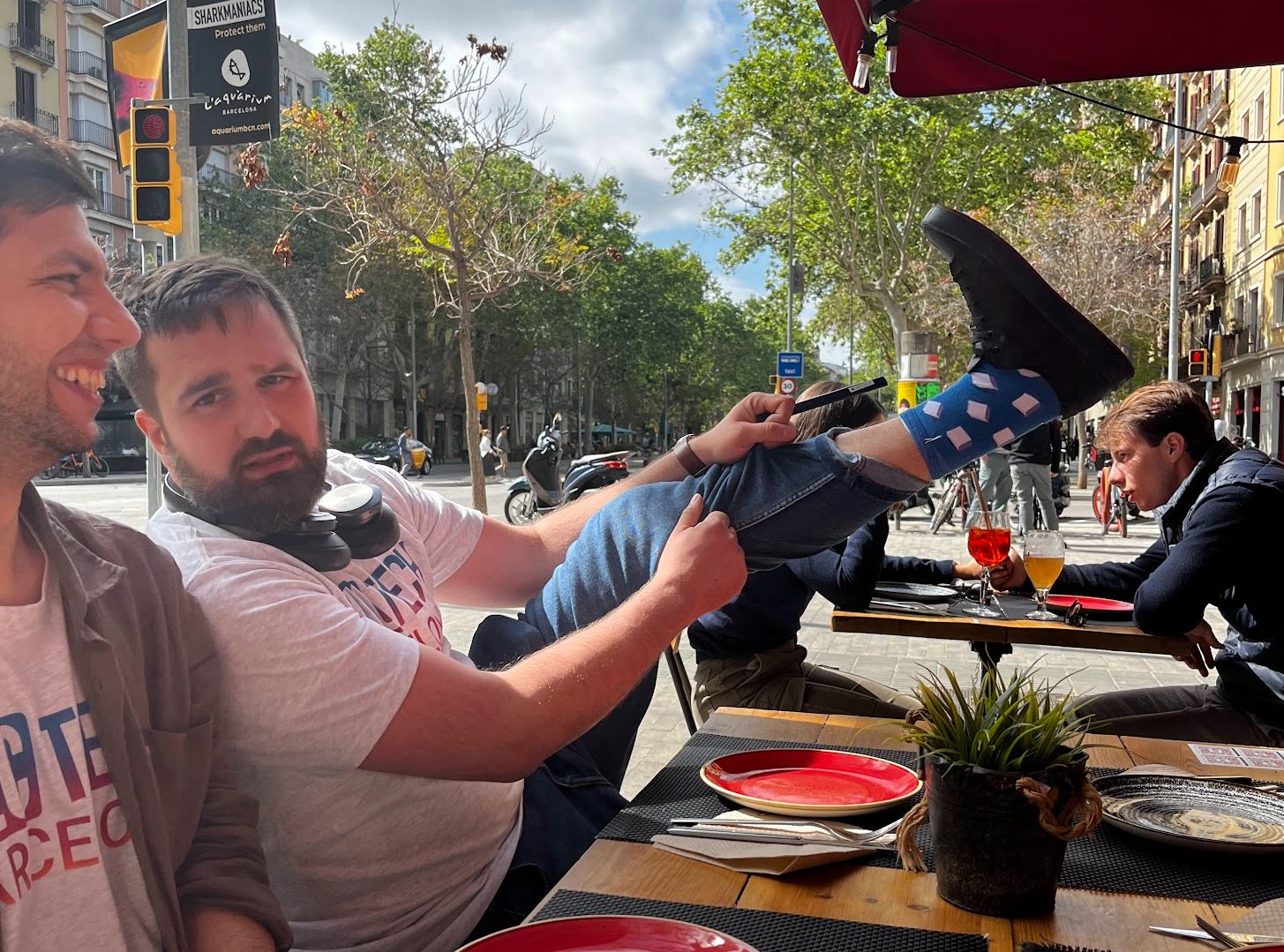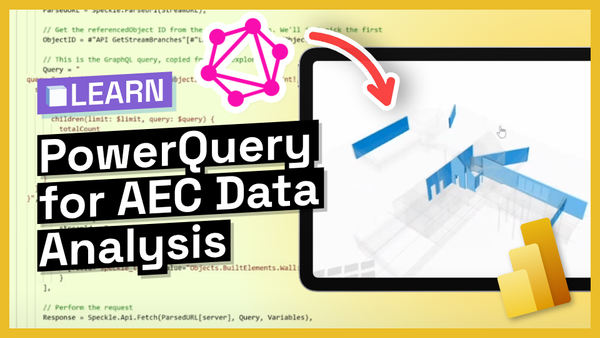Here’s our recap of last weekend that highlighted the importance of automation, collaboration, and innovation in the building industry, once again.
The Who, What, Where, and Why of AEC Tech
The AEC Tech event, hosted by BIG - Bjarke Ingels Group and McNeel Europe and supported by CORE studio at Thornton Tomasetti, was bustling with the brightest talents in the industry sharing ideas and, objectively speaking, a mutual love for Speckle’s new merch.
Our Community Lead, Johnathon Broughton, is getting closer to a silent meditation retreat with every day that passes, considering his comms never quit buzzing. The reason can be summed up in one exquisite word: Automate.
In his talk, “Empowering the Next Generation of Professional Computational Designers,” Jonathon shared his insights on the discipline and professionalism in computational design and introduced the vision behind Speckle Automate.
Automate lets your workflows run automatically without waiting for someone to press a button. Whenever you publish a new version of your model to Speckle, it will run, reliably, so you can focus on what matters.

::: tip
If you’d like to get your hands on Automate, join our Hackathon in June to be part of the first couple of hackers who try it.
:::
Winning by Hacking with Speckle
Our team had their hands full in the hackathon portion of the event, assisting teams leveraging our platform to create innovative solutions.
Four of the eight teams were either heavily or adjacently relying on Speckle, as they discovered we had already covered a significant portion of their project space. Talk about saving time and effort in an already time-crunching hackathon context!
We’re very proud to say that one of those teams took home the Best Overall Hack prize with an idea powered by Speckle Automate and the creative use of our 3d viewer.
Let’s deep dive into the winning projects:
“C”: Best Overall Hack
Team: Håvard Wormdal Høiby, Mrinalini Verma, Adrian Granosik, Konrad Zaremba, Damian Granosik and Ashkan Rezaee
Idea: A platform that enables designers to share models and analysis for easy comparison, facilitating objective discussions among colleagues about design choices. This application integrates Rhino with Speckle, allowing users to push analysis data for collaborative evaluation and answer the crucial question: "Which is better?"
Check out “OpenBid”: Speckle meets VIKTOR
Team: Andrew Blasdale, Sylvain van der Meer, Ayse Esin Durmaz, Florencia Feldsberg, Xavier Garnavault
Idea: An open-source platform solution for bid management, augmented by Speckle and VIKTOR. This solution allows asset managers and contractors to request bids transparently and easily. Data is published to Speckle and accessed through a user interface built with Viktor's UI components. The SpecklePy SDK queries the data for further interaction and analysis.

The Symposium: Industry Presentations Spotlight
We thought we’d wrap this up by giving props to a few standout talks from the AEC Tech weekend that fired us up!
David Mans, CORE Studio Thornton Thomasetti
David showcased the trailblazing CORE studio’s latest creations. The new Ellipse app, and two Grasshopper plugins; TTToolbox 2, a refreshed version of integration with Excel and Rhino attributes, and The Adobe Illustrator Toolkit, integrated with ShapeDiver.
It was reassuring to see CORE pushing for a cloud-based application like Ellipse with a focus on Business Intelligence (BI) tools and AEC software integration.
We’re right there with you, and if you want to read more about how Speckle meets BI, check this out.
Vanessa Steeg, McNeel
Did you know Rhino is used to design jewelry? Vanessa took us through the zoom-ins and zoom-outs of Rhino use cases through different industries, from the marine designing and automobile industries to education, as well as the expected terrain and urban management in city master plans.
Rhino is proving its status as a powerful tool now and again, which is why, no matter if you’re receiving geometry of a carefully crafted necklace or scaffolding BIM models from simple geometry, Speckle for Rhino is here to help along the way.
David Andres Leon
David went from user to developer, and what that means is David went from screaming into the void of AEC software dissatisfaction to developing skills to close the void. We doubt you’ll find a team who appreciates that more than us!
He emphasised the need for computational literacy: users must understand not only how to use a tool, but also why they are using it. According to David, some recent studies show that only a fraction of small to medium-sized enterprises in the AEC field have fully integrated advanced digital tools into their workflows. It seems we have a long way to go! We encourage you to read more about David’s thoughts on lowering the technological barrier for architecture and design here.
Begoña Gassó, Modelical
Begoña presented their approach to product management and feature development. The Modelical team focuses on providing greater value to the user (UX approach), stating that AEC tech is chalkfull (about 80% to be precise) of features that rarely or never add value.
An honorable mention goes to their telecommunications Digital Twins. Modelical presented a client's case where they built a platform to monitor the structural behavior of telecommunication towers in real-time. Check out more about it here.
Sandra Regué, 011h
how can we accelerate the transition to sustainable construction using digital tools? And how can we help teams navigate between the physical and digital worlds to be more confident and increase their performance? Sandra, Head of System for Innovation at 011h, covered these questions in depth, delving into statistics and challenges the AEC industry is facing.
Interested in Another Hackathon?
If you’re also a big fan of AEC hackathons, this is your chance to hack alongside creative and innovative Speckle champions. Bring your team on board during Beyond the Speckleverse, a global and online hackathon series serving the AEC industry. From Automate to Business Intelligence, pick the category you’re most comfortable in to win up to $5,000 in prizes. See you in June!


